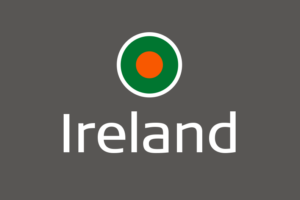Ireland’s Mandatory Pension Auto Enrollment Projected for 2024
 The latest government update slates Ireland’s mandatory pension auto-enrollment scheme to become effective in 2024. The automatic enrollment (AE) system compels all employers to automatically enroll and contribute to a pension/retirement plan for their staff. Essentially the AE system aims to reach the 750K low to middle-income earners, aged 23 to 60, who earn in excess of €20K per year, and whose employers do not operate a pension currently or make any pension contribution.
The latest government update slates Ireland’s mandatory pension auto-enrollment scheme to become effective in 2024. The automatic enrollment (AE) system compels all employers to automatically enroll and contribute to a pension/retirement plan for their staff. Essentially the AE system aims to reach the 750K low to middle-income earners, aged 23 to 60, who earn in excess of €20K per year, and whose employers do not operate a pension currently or make any pension contribution.
When the plan goes into effect, employers are required to match contributions equivalent to 1.5% of base salary in year 1, and contributions build to a 6% match over 10 years across all employers and employees. For clarity, new employers setting up a company in 2035 would require on day 1 to offer employees 6% + 6% – not linked to the tenure of the employee.
The current statutory minimum is to offer a Personal Retirement Savings Account (PRSA) facility with tax relief provided at source payroll for employees to contribute to their own retirement. Employers must facilitate access to a PRSA where they do not offer membership in an Occupational Pension Scheme to employees within 6 months of employment but are currently not required to make a contribution. With AE, a contribution would be mandated.
AE differs from Ireland’s current system because there would be no tax relief on contributions. There would be a top-up from the government, which in real-world terms would equate to 25% income tax relief. Other differences include:
- Important Note: Currently, single individuals earning under € 36.8K per year may do better under the new system since they only receive 20% income tax relief under the existing scheme – where contributions levels are equivalent. This also assumes the employer contribution is not preferable or superior to the proposed AE System.
- Important Note: 40% of income taxpayers, therefore, would not do as well under an AE system as their relief would reduce, so the AE system will not benefit higher earners or employees who already enjoy a good level of employer contribution.
- Under AE, it is likely there will be no choice for members in investment manager, with potentially four outsourced managers to be sourced and appointed, and then operating with a blind investment system. The fund choices would be conservative, moderate, and higher risk, with a default lifestyle fund. There would be no mechanism for any advice about the funds other than the information posted online.
- The system would not be run through a broker channel.
- There is no opt-out for employers who currently do not offer a pension.
Exemptions – Employers operating with their own occupational pension schemes prior to the introduction of AE would likely be exempt from the AE system; however, the criteria for an exemption are yet to be agreed upon.
There is some skepticism amongst financial services industry professionals in Ireland that this new system can be established and resourced in such a tight time frame. Regardless, employers must be prepared for the scheme’s introduction. Employers in Ireland should review their current arrangements against their current employee demographic so that the most appropriate retirement benefit structure for their organization is in place.
Glennon, Asinta’s employee benefits consulting Partner in Ireland, provided this article about Ireland’s mandatory pension auto-enrollment program.
